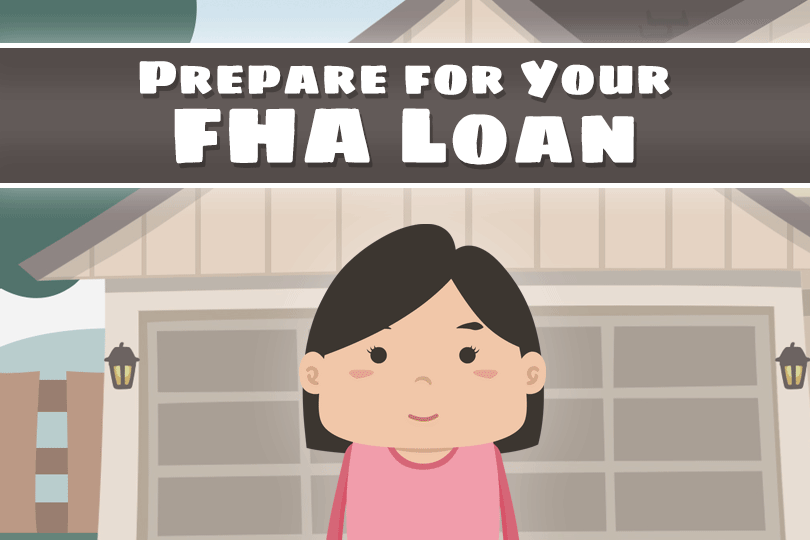When Buying with an FHA Loan, Don't Skip the Home Inspection
December 9, 2021
This wait isn’t easy, since most homebuyers are ready to just close on the home and move in. But getting a home inspection is a crucial step, and not one you should consider skipping. Make sure you hire a reliable home inspector, and watch out for these red flags.
Foundation Problems
While some cracks in the walls and floors might be nothing more than regular aging of the house, it takes a professional to know when those are actually signs of foundation defects. Your home inspector may even recommend calling in another professional to be absolutely certain whether the signs are serious, or if they signal the normal “settling” of the house. If the house is settling unevenly, it could be ripping the entire frame apart. Getting an inspection done to make sure that is not the case could save you from buying a home that leads to costly measures down the road.
Leaking Roofs
Replacing or repairing a roof can be a huge expense. A home inspection can detect a leaky roof, but that is only part of the problem. You also need to think of the water damage is causes to your home. It can lead to wood rot, mold, and mildew, which are not only health hazards, but can also cause the structure to weaken. If your home inspection comes up with a roof leak, take into account the costs of fixing all these issues before buying the house.
Exterior Issues
Your roof is not the only area where water damage is a concern. The floors and walls can also retain moisture. Caulking and weather stripping can dry out or disintegrate near doors, windows, and skylights that are more susceptible to the elements. Similar to roof problems, the problem does not go away with resealing the areas. The larger concern is the water damage already caused by the weathering.
Old Plumbing
Leaking, decades-old plumbing can understandably escape a homebuyer’s notice since it’s hiding out of view within the walls. Home inspectors know what to look for. Older pipes are likely to burst, and depending on where that happens, it can lead to a huge financial drain to get fixed.
Electrical
Outdated wiring is something that can come up in a home inspection because of what it leads to. It can cause electrical fires, and lack of electricity can leave homeowners vulnerable since it means loss of a working refrigerator, heating and cooling, and lights. When it comes to redoing a house’s electrical wiring, there is no easy way to go about it. Not only are you hiring a professional to complete the re-wiring, you need them to open up and then repair the walls as well, making it an expensive undertaking.
------------------------------
RELATED VIDEOS:
Get Your Questions Ready for Your Loan Officer
The Last Part of the Transaction Is the Mortgage Closing
Know What You Can Borrow With Prequalification

FHA Loan Articles
May 14, 2025When you buy a home with an FHA mortgage, you must pay for both mortgage insurance and insurance to protect your property while paying on the loan. There are important nuances to these insurance policies to know before you start. What's the difference between insurance against water damage and flood insurance? That's just one example of the "hidden" expenses of buying your new home to budget for.
May 13, 2025Buying a home with an FHA mortgage means you'll need to know the FHA guidelines about the types of properties you can purchase with an FHA single-family home loan for residential purposes. How well do you understand these rules? Are you truly ready to start house hunting? We examine some key aspects of the process.
May 12, 2025FHA single-family home loans require a minimum 3.5% down payment for typical transactions. Saving for this requires planning and dedication, but it’s not impossible to save enough to make the down payment. How do people typically budget and save for this? Your financial needs and goals will play a big role in how much you decide to set aside for your new home, but here are some options to think about...
April 30, 2025 In a previous post, we discussed why FHA borrowers should carefully consider whether paying for discount points truly serves their best interests, focusing on factors like short-term homeownership, opportunity cost, FHA mortgage insurance, and the prevailing interest rate environment. Discount points are an option for borrowers willing to pay a fee to lower the interest rate by a set amount. This is not right for all borrowers, and you don't want to pay for points you won't benefit from during the loan term.
April 29, 2025Are you considering buying a home with an FHA loan? You'll likely talk to your participating lender about FHA loan "discount points" – fees you pay upfront for a lower interest rate on your mortgage. The idea behind discount points is a straightforward exchange: you spend money today to reduce your interest rate. Typically, one point equals one percent of your total FHA loan. In return, your interest rate might decrease by an amount you and the lender agree upon.







